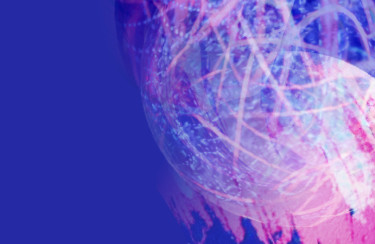Season 1

Collecting
Why do we collect things? Sir David ponders the decline in collecting by children today, and with it the development of an early fascination with the natural world around them.
Collecting
Why do we collect things? Sir David ponders the decline in collecting by children today, and with it the development of an early fascination with the natural world around them.
09:36
EP20 - S1
20 Jun 21

Large Blue
The naturalist asks why the Large Blue butterfly died out in the UK in 1979. He also outlines the challenges of its reintroduction into the British countryside and a sinister twist involving a parasitic wasp.
Large Blue
The naturalist asks why the Large Blue butterfly died out in the UK in 1979. He also outlines the challenges of its reintroduction into the British countryside and a sinister twist involving a parasitic wasp.
09:38
EP19 - S1
20 Jun 21

Amber
As a boy, David Attenborough had a piece of amber in which lay a blood-sucking fly. He still has it today. Would it be possible to extract the DNA from one of these insects caught in the resin and, maybe, recreate a dinosaur?
Amber
As a boy, David Attenborough had a piece of amber in which lay a blood-sucking fly. He still has it today. Would it be possible to extract the DNA from one of these insects caught in the resin and, maybe, recreate a dinosaur?
09:21
EP18 - S1
20 Jun 21

Adam’s Face
Sir David recalls the importance of human eyebrows in communication, when he met an aboriginal tribe in New Guinea where there was no other common language.
Adam’s Face
Sir David recalls the importance of human eyebrows in communication, when he met an aboriginal tribe in New Guinea where there was no other common language.
09:17
EP17 - S1
20 Jun 21

Bird’s Nest Soup
The naturalist remembers the battle he had filming the birds of Borneo, whose nests made of saliva are prized by Chinese chefs. Filming in total darkness in a cave proved difficult, until a conical mound of bat guano provided a natural platform.
Bird’s Nest Soup
The naturalist remembers the battle he had filming the birds of Borneo, whose nests made of saliva are prized by Chinese chefs. Filming in total darkness in a cave proved difficult, until a conical mound of bat guano provided a natural platform.
09:26
EP16 - S1
20 Jun 21

Tracks
Following the tracks left by animals is a great craft owned by many aboriginal people. Doing the same with fossilised tracks is much the same skill, but with a whole new set of extraordinary revelations.
Tracks
Following the tracks left by animals is a great craft owned by many aboriginal people. Doing the same with fossilised tracks is much the same skill, but with a whole new set of extraordinary revelations.
09:24
EP15 - S1
20 Jun 21

The Dodo
Slaughtered into oblivion by seafarers for its meat, the naturalist asks what we can learn from the case of the Dodo; the most famous of extinct species.
The Dodo
Slaughtered into oblivion by seafarers for its meat, the naturalist asks what we can learn from the case of the Dodo; the most famous of extinct species.
09:18
EP14 - S1
20 Jun 21

Coelacanth
Sir David showed the first live specimen of a Coelacanth on TV. It’s a primitive bony fish thought to be an important ancestor to all back-boned animals that ventured onto land, but is it a living fossil was claimed to be?
Coelacanth
Sir David showed the first live specimen of a Coelacanth on TV. It’s a primitive bony fish thought to be an important ancestor to all back-boned animals that ventured onto land, but is it a living fossil was claimed to be?
08:49
EP13 - S1
20 Jun 21

Faking Fossils
Sir David recalls a key moment in his life, when he broke open a piece of Leicestershire limestone and there in his hand was an ammonite - sparking his love of fossils. He subsequently became a great collector, even of the odd fake.
Faking Fossils
Sir David recalls a key moment in his life, when he broke open a piece of Leicestershire limestone and there in his hand was an ammonite - sparking his love of fossils. He subsequently became a great collector, even of the odd fake.
09:15
EP12 - S1
20 Jun 21

The Serpent’s Stare
The famous naturalist looks at why underground animals evolved in a very different way from those on the surface. They are a different shape, their senses are tuned in a very different way and they manifestly come from a different world.
The Serpent’s Stare
The famous naturalist looks at why underground animals evolved in a very different way from those on the surface. They are a different shape, their senses are tuned in a very different way and they manifestly come from a different world.
09:03
EP11 - S1
20 Jun 21

Birds of Paradise
Sir David talks about the Birds of Paradise, a group of birds which evolved in the relative safety of New Guinea, allowing them to acquire adornments and feathered decorations so resplendent that they fooled the early explorers who discovered them.
Birds of Paradise
Sir David talks about the Birds of Paradise, a group of birds which evolved in the relative safety of New Guinea, allowing them to acquire adornments and feathered decorations so resplendent that they fooled the early explorers who discovered them.
09:19
EP10 - S1
20 Jun 21

Salamander
Sir David recalls his first pet, a fire salamander given to him by his father on his 8th birthday. He also gave his own son a salamander on his 8th birthday, the legacy of which is very much alive and kicking today.
Salamander
Sir David recalls his first pet, a fire salamander given to him by his father on his 8th birthday. He also gave his own son a salamander on his 8th birthday, the legacy of which is very much alive and kicking today.
09:26
EP09 - S1
20 Jun 21

Archaeopteryx
Sir David recounts the remarkable story of a feather, like any other feather from a bird. Only this one was a 150-million-year-old feather from an animal that lived before birds had even evolved.
Archaeopteryx
Sir David recounts the remarkable story of a feather, like any other feather from a bird. Only this one was a 150-million-year-old feather from an animal that lived before birds had even evolved.
09:45
EP08 - S1
20 Jun 21

Dragons
Sir David recalls meeting a ten-foot-long grey-scaled reptile, with a long, yellow forked tongue - the Komodo dragon. He didn't run and, in fact, was one of the first to film this incredible creature.
Dragons
Sir David recalls meeting a ten-foot-long grey-scaled reptile, with a long, yellow forked tongue - the Komodo dragon. He didn't run and, in fact, was one of the first to film this incredible creature.
09:39
EP07 - S1
20 Jun 21

Bowerbirds
The famous naturalist muses on one of the most extraordinary structures in the animal world, built by New Guinea's Vogelkop bowerbirds to attract mates.
Bowerbirds
The famous naturalist muses on one of the most extraordinary structures in the animal world, built by New Guinea's Vogelkop bowerbirds to attract mates.
09:30
EP06 - S1
20 Jun 21

Songsters
Naturalist Sir David Attenborough muses on the messages conveyed in the syllables, melodies and repeated phrases of singing birds and ponders who is listening.
Songsters
Naturalist Sir David Attenborough muses on the messages conveyed in the syllables, melodies and repeated phrases of singing birds and ponders who is listening.
09:31
EP05 - S1
20 Jun 21

Giant Birds
Madagascar, off the eastern coast of Africa, is the largest continental island in the world. It is also the place where the largest egg known to have existed was laid, and the bird that laid it was also a giant.
Giant Birds
Madagascar, off the eastern coast of Africa, is the largest continental island in the world. It is also the place where the largest egg known to have existed was laid, and the bird that laid it was also a giant.
09:53
EP04 - S1
20 Jun 21

Platypus
Sir David muses on Australia’s elusive, burrowing female duck-billed platypus from the soft, muddy river banks of New South Wales. Not only is this the strangest of creatures, it is also one of the most tricky to film.
Platypus
Sir David muses on Australia’s elusive, burrowing female duck-billed platypus from the soft, muddy river banks of New South Wales. Not only is this the strangest of creatures, it is also one of the most tricky to film.
09:43
EP03 - S1
20 Jun 21

Monstrous Flowers
Deep in the steamy forests of Sumatra, the largest flowers in the world bloom, albeit for under a week. But why are they so big? Sir David Attenborough explains.
Monstrous Flowers
Deep in the steamy forests of Sumatra, the largest flowers in the world bloom, albeit for under a week. But why are they so big? Sir David Attenborough explains.
09:34
EP02 - S1
20 Jun 21

Sloths
Legendary naturalist David Attenborough muses on the natural history of the sloth - perhaps the most lethargic beast in the animal world, and one that he has admitted to wanting to be.
Sloths
Legendary naturalist David Attenborough muses on the natural history of the sloth - perhaps the most lethargic beast in the animal world, and one that he has admitted to wanting to be.
09:54
EP01 - S1
20 Jun 21


